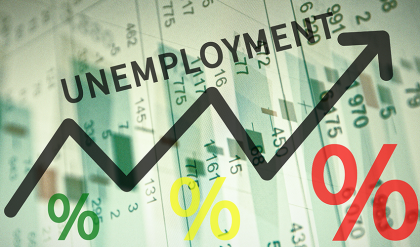Inappropriate financial donor influence at institutions of higher education appears to be on the rise and risks eroding public trust in academic research. In order to defend academic freedom and institutional independence, we have decided to create a new database to document clear violations of well-accepted norms involving financial donations.

Inappropriate financial donor influence at institutions of higher education appears to be on the rise, as exemplified by recent controversies at (among other schools) George Mason University, Florida State University, the University of Kansas, Case Western Reserve University, Saint Louis University, Carleton University, and Chapman University. Such influence is part of the growing concern over financial elites using philanthropic activity to turn private wealth into public influence, thereby subverting democratic principles .
Public trust in the integrity of scholarship is vital if academia is to advance the public interest. Undue financial donor influence has the potential to bias scholarship and compromise truth-seeking, thereby undermining public trust. In particular, researchers funded by donors granted inappropriate influence are less likely to be wholly independent—consequently, the integrity of their scholarship is more likely to be called into question.
Norms of academic freedom and institutional independence—sustained by the practice of faculty governance over academic matters—have historically safeguarded the integrity of scholarship and promoted public trust. By violating well-accepted academic norms, inappropriate financial donor influence erodes public trust and diminishes the value of academic research to society .
For these reasons, we have decided to create a database that we call the Academic Capture Warning System (ACWS).
What is it?
The ACWS is a repository of information on clear violations of well-accepted academic norms involving financial donations to institutions of higher education. Such violations jeopardize the independence and integrity of academic research. Key purposes of the ACWS are to
raise awareness and inform the public about research that is at heightened risk of being inappropriately influenced by financial donors;
encourage researchers, university administrators and fundraisers, and donors alike to carefully consider the role of academic norms in protecting the independence of academic research and advancing the public good;
encourage individual researchers, as well as colleges and universities as a whole, to be transparent regarding funding sources and the role of financial donors in their work;
alert funding agencies (e.g., the National Science Foundation) and journal editors of proposals and papers that warrant extra scrutiny because the research was funded by donations that violated well-accepted academic norms;
help public policymakers distinguish between research that has been vetted through an academic peer-review process and research that has not been independently scrutinized for potential bias due to conflicts of interest;
honor donors who financially support academic research without strings attached and by doing so support public trust in the integrity of scholarship.
The repository’s name, the Academic Capture Warning System, is inspired by Nobel laureate economist George Stigler’s theory of regulation (Stigler 1971). In principle, regulation is intended to serve the public interest. In practice, however, Stigler taught us that regulators may be “captured” by the very businesses that they are supposed to regulate. As a result, instead of serving the public interest, regulation may advance narrow commercial or political interests. A similar phenomenon potentially plagues donor-funded academic research. In principle, academic research is intended to serve the public interest. In practice, if institutions of higher education become “captured” by financial donors, then academic research is at greater risk of becoming (wittingly or unwittingly) biased towards donors’ own interests.
The ACWS will provide information on organizations and individuals that have engaged in violations of well-accepted academic norms involving financial donations. Organizations include private foundations, public charities, colleges, universities, departments, centers, and institutes; individuals include donors, administrators, directors, and researchers.
What does inappropriate donor influence look like?
We highlight two broad categories of the most common types of inappropriate financial donor influence:
1. Financial donor influence in hiring decisions. Such influence can take the form of a financial donor requesting that a specific individual be hired by a department, center, or institute that is part of a college or university. It can also manifest in a donor (or a donor representative) serving on a committee that reviews candidates or provides approval for the funding of a position for a specific individual in a department, center, or institute that is part of a college or university.
2. Financial donor influence in individual research projects.Influence in this context entails a financial donor providing direction and/or funding approval for individual research projects conducted under the auspices of a department, center, or institute that is part of a college or university, in violation of institutional independence.
Such violations of well-accepted norms allow financial donors to purchase the imprimatur of independent academic research, while breaking the very rules of the game that safeguard the independence and integrity of academic research.
Does the ACWS aim to change incentives?
Yes. The ACWS implements a recommendation of Zingales (2013) by bringing attention to organizations and individuals who do not adhere to basic principles of academic independence and integrity. Colleges and universities, administrators, and researchers are understandably concerned about their reputations. The risk of suffering reputational damage by failing to adhere to well-accepted academic norms in financial donations significantly raises the costs of accepting such donations, thereby helping to make them less likely. Alerting of funding agencies and journal editors to research funded by donations that violate well-accepted academic norms also raises the costs of accepting such contributions. Furthermore, the publicity surrounding donations that violate academic norms calls into question the charitable intent of donors, thereby reducing the value of such donations to philanthropic organizations and individuals who want to be perceived as generous.





